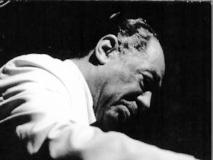This Day in Black History: Duke Ellington is Born
Share
Explore Our Galleries
Breaking News!
Today's news and culture by Black and other reporters in the Black and mainstream media.
Ways to Support ABHM?
From the African American Registry
On this date in 1899, Duke Ellington was born. He was an African-American jazz composer, band leader, and pianist.
Born Edward Kennedy Ellington in Washington, D.C., into a middle-class family, he acquired the nickname Duke as a child for his manners, clothing, and personality. He began playing for friends and at parties and soon formed a small dance band named The Duke’s Serenaders. In 1923 Ellington moved to New York City, 4 years later Ellington began performing at The Cotton Club, the most prominent nightclub in the Harlem area of New York City at the time.
Read more about Duke Ellington here.
Find Jazz concerts and festivals on our events page.










Comments Are Welcome
Note: We moderate submissions in order to create a space for meaningful dialogue, a space where museum visitors – adults and youth –– can exchange informed, thoughtful, and relevant comments that add value to our exhibits.
Racial slurs, personal attacks, obscenity, profanity, and SHOUTING do not meet the above standard. Such comments are posted in the exhibit Hateful Speech. Commercial promotions, impersonations, and incoherent comments likewise fail to meet our goals, so will not be posted. Submissions longer than 120 words will be shortened.
See our full Comments Policy here.